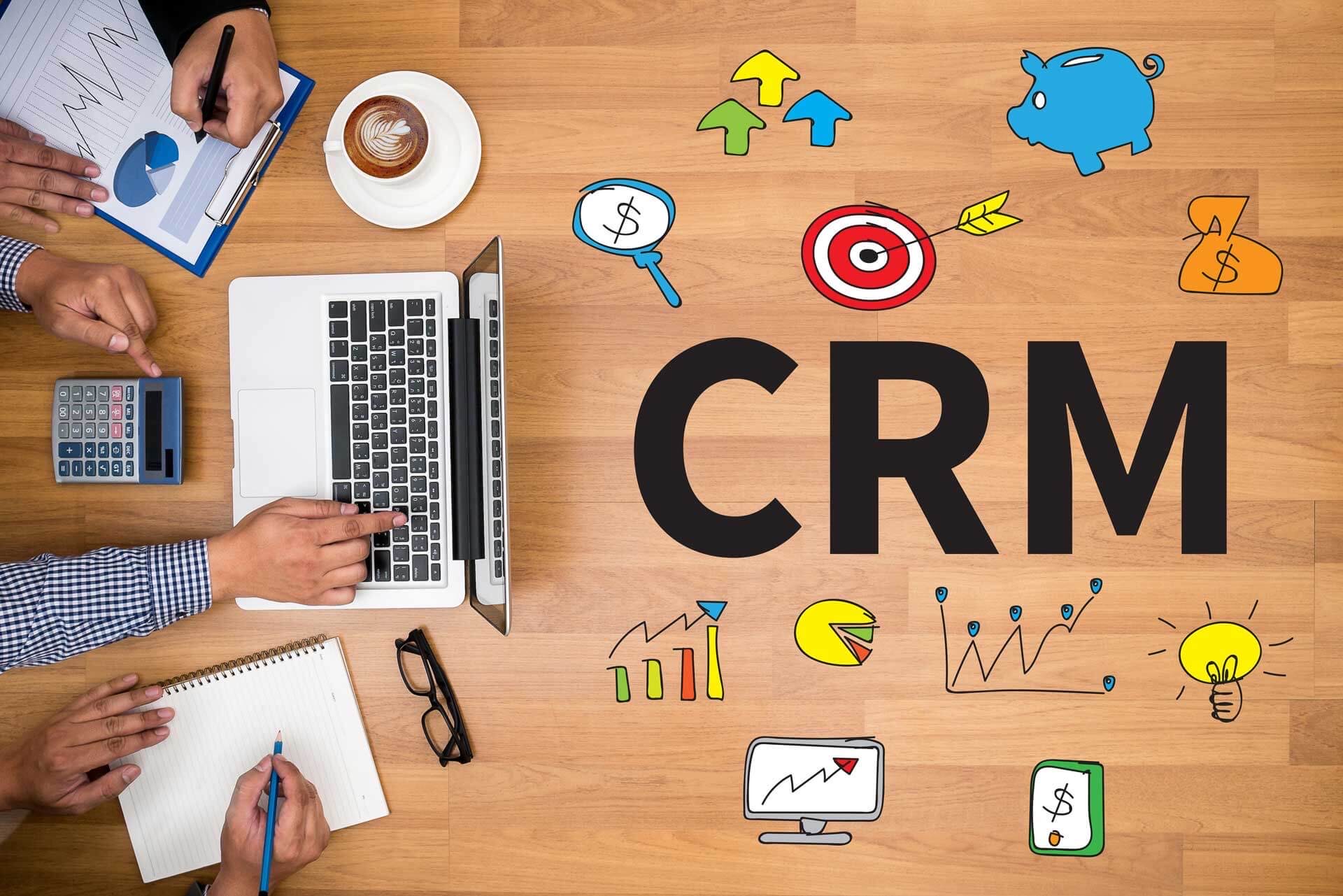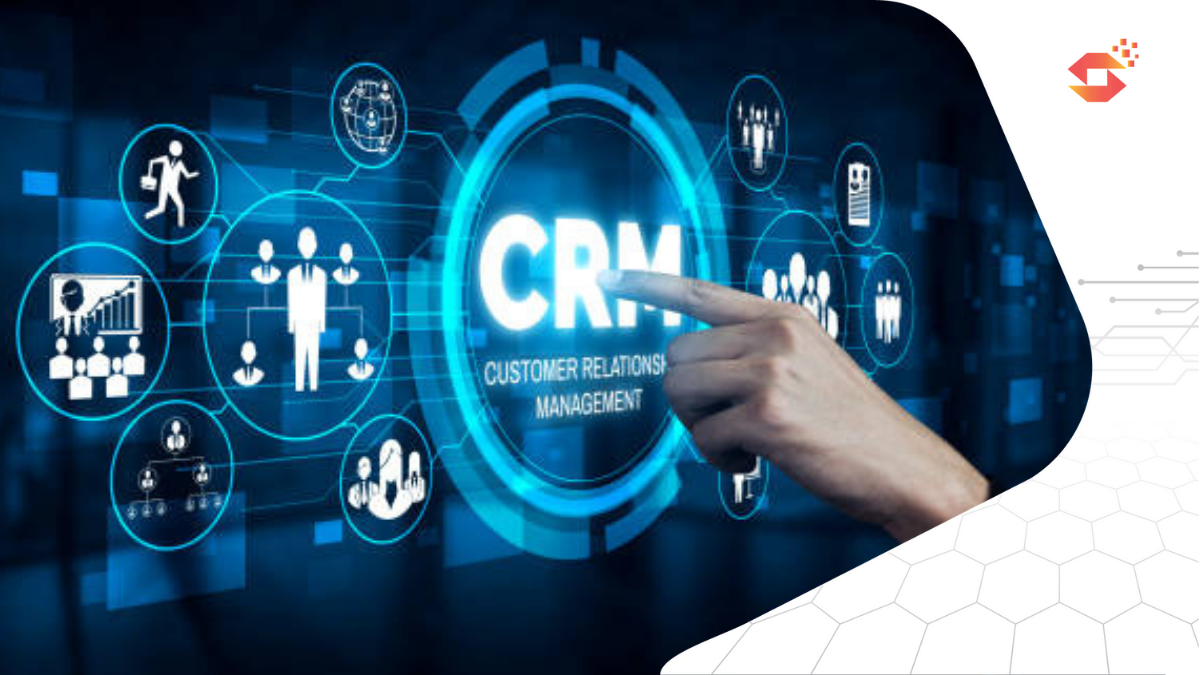crm associate is more than just a job title—it’s a dynamic role at the heart of customer relationship management, where technology meets human connection. Entering the world of a crm associate means navigating the fast-paced intersection of business strategy, data management, and customer satisfaction, making each day unique and impactful.
These professionals are responsible for managing customer information, supporting sales and marketing campaigns, maintaining data accuracy, and ensuring all customer interactions lead to satisfying experiences. By leveraging powerful CRM software and collaborating across teams, crm associates play a vital part in driving business success and keeping customers engaged and loyal.
Definition and Role of a CRM Associate
A CRM associate functions as a pivotal link between a business and its customers, ensuring seamless interactions and effective management of customer data. Their primary focus is to maximize customer satisfaction and retention by leveraging customer relationship management strategies and technologies.
Primary Responsibilities of a CRM Associate
CRM associates handle a wide range of duties centered around managing customer relationships and optimizing the customer journey. They are responsible for maintaining accurate customer records, coordinating communications, and leveraging CRM platforms to track and analyze customer interactions.
- Updating and maintaining customer databases to ensure data accuracy and completeness.
- Coordinating personalized communications and campaigns to enhance customer engagement.
- Analyzing customer behavior and feedback to identify opportunities for improvement.
- Assisting in the resolution of customer issues by liaising with support and other departments.
- Generating reports and insights for management based on CRM analytics.
Importance within a Modern Business Environment
The presence of a CRM associate is increasingly critical as organizations seek to deliver highly personalized customer experiences. They not only contribute directly to customer satisfaction but also influence business growth by identifying customer needs and opportunities for upselling or cross-selling. In a digital-first landscape, CRM associates help businesses remain competitive through efficient data-driven decision making.
Typical Reporting Hierarchy
CRM associates generally operate within the sales, marketing, or customer service departments. They commonly report to a CRM manager, marketing manager, or head of customer experience.
| Position | Reports To | Collaborates With |
|---|---|---|
| CRM Associate | CRM Manager / Marketing Manager | Sales, IT, Customer Support |
| CRM Manager | Head of Marketing / Director of CX | CRM Associates, Analysts, Department Heads |
Key Skills Required for a CRM Associate
CRM associates are expected to possess a balanced mix of technical abilities and interpersonal skills to handle both the analytical and human-centric aspects of their role. These competencies support their effectiveness in managing relationships and optimizing CRM tools.
Essential Technical and Soft Skills
To excel as a CRM associate, professionals must master several core skills. Technical prowess is important for data management and software navigation, while soft skills are essential for communication and problem-solving.
- Technical proficiency: Familiarity with CRM platforms (e.g., Salesforce, HubSpot), data entry, and reporting tools.
- Analytical thinking: Ability to interpret customer data and draw actionable insights.
- Communication: Clear and empathetic interaction with customers and team members.
- Attention to detail: Ensuring data accuracy and spotting inconsistencies quickly.
- Multitasking: Managing multiple customer requests and projects at once.
- Problem-solving: Finding solutions to customer issues efficiently.
Comparison with Similar Roles in CRM
While CRM associates share some overlapping skills with roles like customer service representatives or sales analysts, they typically require a stronger focus on technology and data management.
- CRM associates emphasize database management more heavily than traditional sales roles.
- Compared to customer support agents, CRM associates engage more with analytics and campaign coordination.
- Sales analysts may have a deeper focus on forecasting and market trends, while CRM associates bridge the gap between data and direct customer interaction.
Real-World Application of CRM Associate Skills
Many daily tasks highlight the relevance of these skills. For example, during a marketing campaign, a CRM associate may segment customer lists based on purchasing history to ensure targeted messaging. When a customer issue arises, their communication and problem-solving skills help turn complaints into positive experiences.
Typical Duties and Daily Workflow
CRM associates follow structured routines designed to support smooth customer interactions and efficient data management. Their workflow is dynamic, often requiring adaptability to shifting priorities throughout the day.
Major Tasks Handled by a CRM Associate

The main duties revolve around maintaining databases, coordinating with teams, and executing customer-focused initiatives.
- Reviewing and updating customer information in the CRM system.
- Coordinating with marketing to launch targeted email or SMS campaigns.
- Responding to customer inquiries via various channels.
- Preparing daily or weekly reports on customer engagement metrics.
- Setting up follow-up reminders for sales teams or support staff.
Sample Schedule for a CRM Associate
A typical day often involves balancing routine updates with unexpected customer or team requests. Here’s an example of how a CRM associate might structure their workday:
| Time | Task | Objective | Tools Used |
|---|---|---|---|
| 09:00 – 10:00 | Data Entry & Validation | Update latest customer records for accuracy | CRM Software |
| 10:00 – 11:00 | Campaign Setup | Segment customer lists for targeted marketing | Email Marketing Tool, CRM |
| 11:00 – 12:00 | Customer Follow-ups | Respond to inquiries, schedule callbacks | Email, Phone, CRM |
| 13:00 – 15:00 | Reporting | Compile data on campaign performance | CRM Analytics, Spreadsheets |
| 15:00 – 17:00 | Team Coordination | Sync with sales/support for updates and planning | Messaging Apps, CRM, Meetings |
Effective Customer Data Management Process
Managing customer data effectively involves following strict protocols for data entry, validation, and regular audits. CRM associates also implement checks to prevent duplicates and ensure privacy compliance, resulting in reliable and actionable databases for the entire organization.
CRM Software and Tools Utilized
CRM associates rely on robust software and digital tools to streamline their daily operations. The choice of platform significantly impacts workflow efficiency, reporting capabilities, and the ability to deliver personalized customer experiences.
Common CRM Platforms and Tools
Leading CRM solutions are designed to accommodate varying business needs, featuring automation, analytics, and integration with other business applications.
- Salesforce
- HubSpot CRM
- Zoho CRM
- Microsoft Dynamics 365
- Pipedrive
- Freshsales
Comparison of Popular CRM Software Solutions
The following table provides an overview of key features, ease of use, and industry adoption among top CRM platforms:
| Platform | Core Features | Ease of Use | Industry Adoption |
|---|---|---|---|
| Salesforce | Advanced customization, automation, analytics | Moderate to Advanced | High (Enterprise) |
| HubSpot CRM | Intuitive interface, built-in marketing tools | Easy | High (SMB to Mid-size) |
| Zoho CRM | Affordable, strong automation, integrations | Easy to Moderate | Moderate (SMB) |
| Microsoft Dynamics 365 | Deep integration with Microsoft ecosystem | Moderate | High (Enterprise) |
| Pipedrive | Pipeline management, automation, user-friendly | Easy | Moderate |
The Role of Technology in CRM Associate Productivity
Technology enables CRM associates to automate repetitive tasks, access real-time insights, and maintain high standards of data accuracy. Advanced platforms offer features like AI-driven recommendations, ensuring associates can focus on building relationships rather than manual data entry.
Best Practices for Customer Data Management

Effective customer data management is the foundation of any successful CRM strategy. Adhering to proven best practices enables associates to maintain high data integrity, avoid compliance risks, and support superior customer experiences.
Procedures for Capturing, Updating, and Safeguarding Customer Information
Consistently following set protocols for data handling not only ensures accuracy but also upholds customer trust.
- Standardize all data entry fields to reduce inconsistencies.
- Validate new information against existing records to avoid duplication.
- Set regular audit schedules to verify data accuracy.
- Restrict access to sensitive information using role-based permissions.
- Implement encryption for data storage and transmission.
- Train staff on privacy regulations like GDPR or CCPA.
Ensuring Data Accuracy and Privacy Compliance

To maintain compliance with privacy laws, CRM associates monitor changes in regulations and adapt policies accordingly. Data accuracy is achieved through routine cleansing and validation checks, with automated alerts for anomalies.
Common Customer Data Management Procedures
Practices in data management can be categorized as follows:
- Regularly back up databases to prevent data loss.
- Monitor user activity logs for unauthorized access.
- Periodically review customer consent for communications.
- Update records immediately following customer interactions.
- Archive outdated information securely as per company policy.
Common Challenges Faced by CRM Associates
While the role of a CRM associate is rewarding, it comes with its share of obstacles. Navigating these challenges efficiently is crucial for maintaining smooth operations and protecting the customer relationship.
Frequent Obstacles and Pain Points
Routine challenges include data integrity issues, shifting customer expectations, and technical difficulties with CRM systems. High workloads and constant coordination with multiple departments can also be demanding.
- Dealing with incomplete or duplicate customer records.
- Managing large volumes of data during peak campaign periods.
- Resolving customer complaints in a timely and professional manner.
- Adapting to frequent CRM software updates or changes.
- Balancing multiple priorities and tight deadlines.
Troubleshooting Difficult Customer Interactions
CRM associates often serve as frontline problem solvers. Their approach to challenging situations is shaped by empathy, patience, and effective communication.
“Always listen actively to the customer, acknowledge their concerns, and provide a clear plan of action. This builds trust and increases the likelihood of a positive resolution.”
Tips for Overcoming Challenges Efficiently
Experienced CRM professionals rely on practical advice to stay resilient in the face of adversity.
“Keep learning about new CRM features and best practices—continuous improvement makes you more adaptable and resourceful when issues arise.”
Career Development and Advancement Paths
A CRM associate role offers a strong starting point for building a career in customer relationship management. With the right experience and skill set, professionals can move into more specialized or senior positions.
Possible Career Progression Options
Advancement in this field typically involves moving into roles that demand greater responsibility for strategy, team leadership, or analytics.
| Advancement Role | Required Skills | Typical Years of Experience |
|---|---|---|
| Senior CRM Associate | Advanced analytics, process improvement | 2-3 |
| CRM Manager | Team leadership, project management, strategic planning | 3-5 |
| Customer Experience Director | Executive communication, cross-department strategy, budgeting | 5-8 |
| CRM Data Analyst | Expert analytics, business intelligence tools | 3-5 |
Strategies for Continuous Professional Growth
Ongoing learning is crucial in the rapidly evolving CRM landscape. Joining professional associations, earning certifications (like Salesforce Certification or HubSpot Academy), and attending industry webinars are effective ways to stay at the forefront of the field. Mentorship from senior CRM professionals also supports accelerated career development.
Collaboration with Other Departments
Interdepartmental collaboration is essential for CRM associates to achieve comprehensive customer insights and deliver unified experiences. By working closely with sales, marketing, IT, and support teams, CRM associates bridge data and strategy across the organization.
Examples of Cross-Functional Projects
Cross-functional collaboration can take many forms, each designed to leverage diverse expertise for better customer outcomes.
- Working with marketing to design and implement customer loyalty campaigns.
- Coordinating with IT to optimize CRM system integrations and troubleshoot technical issues.
- Supporting sales teams with targeted customer data for upselling initiatives.
- Partnering with product teams to gather customer feedback for new feature development.
Benefits of Strong Communication Skills in Team Environments
Clear communication ensures that customer insights are shared efficiently and that all teams remain aligned on goals and strategies. This fosters a collaborative culture where customer needs are prioritized, and solutions are delivered quickly.
Impact of CRM Associates on Customer Experience
CRM associates are instrumental in shaping how customers perceive and engage with a brand. Their actions directly influence customer satisfaction, loyalty, and lifetime value.
Contribution to Customer Satisfaction and Loyalty
Through meticulous data management and personalized outreach, CRM associates ensure that customers feel valued and understood. Their efforts often translate into increased retention and positive word-of-mouth for the business.
“Implementing a tailored communication strategy for repeat customers resulted in a 30% boost in renewal rates for our subscription service, showcasing the measurable impact of a proactive CRM team.”
Significance of Personalized Communication
Personalized communication is at the heart of a positive customer experience. By leveraging CRM data to remember preferences and anticipate needs, associates can create meaningful interactions that set the business apart from competitors.
Future Trends Shaping the CRM Associate Role
Rapid advancements in technology and shifting customer expectations are redefining the CRM associate’s responsibilities. Staying ahead of these trends is crucial for maintaining relevance and effectiveness in the role.
Anticipated Changes Influencing the Role
The next generation of CRM associates will leverage AI, automation, and advanced analytics to drive even deeper customer insights and more efficient processes. Soft skills will become increasingly important as routine tasks are automated.
Emerging Trends in CRM Processes, Crm associate
Several key developments are poised to impact the future of CRM associates:
- Increased use of artificial intelligence for customer segmentation and predictive analytics.
- Automation of repetitive tasks, freeing time for strategic activities.
- Greater emphasis on omnichannel engagement, integrating data across web, mobile, and in-person touchpoints.
- Enhanced focus on data privacy and ethical use of customer information.
- Widespread adoption of self-service portals for customers, shifting the associate’s role toward support and relationship building.
Potential for Automation and AI in CRM Associate Duties
AI-powered tools can streamline data entry, generate actionable insights, and automate follow-up reminders. Real-world cases—such as retail companies using AI to recommend products or personalize offers—illustrate how technology can boost efficiency and improve the customer journey. Embracing these innovations will allow CRM associates to focus on high-value interactions and continuous improvement.
Last Point
In summary, crm associates offer more than just technical support—they are the bridge between customers and businesses, ensuring every interaction counts. With a focus on data management, continuous improvement, and strong communication, crm associates shape exceptional customer experiences and pave the way for organizational growth in a rapidly evolving landscape.
Key Questions Answered
What qualifications do you need to become a crm associate?
Most crm associate positions require a bachelor’s degree in business, marketing, information technology, or a related field. Familiarity with CRM software and strong communication skills are also important.
Is prior experience necessary for entry-level crm associate roles?
Many entry-level positions are open to recent graduates or those with relevant internships, though experience in customer service or data management is a plus.
What industries hire crm associates?
crm associates are in demand across various sectors, including retail, finance, healthcare, technology, and hospitality—essentially, any industry focused on customer engagement.
What are the typical working hours for a crm associate?
crm associates generally work standard office hours, though occasional overtime may be required during key campaigns or data migration periods.
How does a crm associate differ from a crm manager?
A crm associate typically handles daily tasks, data entry, and reporting, while a crm manager oversees broader CRM strategy, supervises teams, and implements process improvements.
